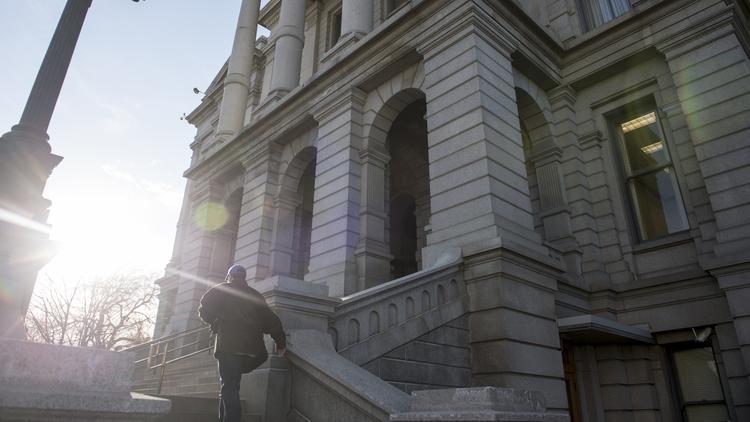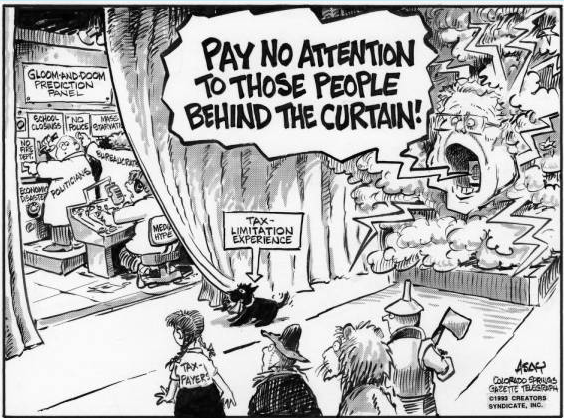
Category Archives: RTD
Voter consent on taxes and debt a vital check in Democrat-controlled Colorado
Voter consent on taxes and debt a vital check in Democrat-controlled Colorado
After the midterm elections, Colorado voters woke up to an electoral map as blue as the sky. Democrats won almost all competitive races, including every state office. They now control both houses of the state legislature. But before we permanently paint Colorado blue, we should consider the outcomes of a few statewide ballot measures.
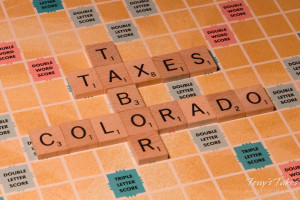
In fact, Colorado voters rejected most of the thirteen ballot measures at the state level. All the ballot measures proposing increased taxes and/or debt were defeated by a wide margin, including measures to fund schools and transportation. However, citizens approved a majority of the state’s local school bond issues and funding packages.
The results of these ballot measures continue a trend that began when the Taxpayer’s Bill of Rights Amendment (TABOR) was ratified in 1992. TABOR requires voter approval for any increase in taxes or debt, and has proven to be the most effective state tax and spending limit in the country. Since TABOR was adopted, very few state ballot measures calling for increased taxes or debt have been approved. However, at the local level the majority of these ballot measures have passed.
IN RESPONSE | We don’t need a tax hike to fix Colorado’s highways
 In this Jan. 7 photo, traffic backs up on Interstate 70 in Colorado, a familiar scene on the main highway connecting Denver to the mountains. (AP Photo/Thomas Peipert)
In this Jan. 7 photo, traffic backs up on Interstate 70 in Colorado, a familiar scene on the main highway connecting Denver to the mountains. (AP Photo/Thomas Peipert)(Re: “Only one ballot issue can tackle Colorado’s transportation challenges,” Aug. 10.)
Let’s fix our roads without a massive 21 percent increase of our state sales tax. The collaborative cronyists’ proposal, “Let’s Go Colorado” — a huge tax increase, allegedly for transportation — hurts everyday, hardworking Coloradans who are chasing their American dream. If the politicians, bureaucrats, governmental appointees and interested parties behind the proposal, get their way, we’ll pay an additional 21 percent in state sales tax on basic items that make our lives better such as diapers, toilet paper and school supplies.
When enjoying a craft brew with colleagues, buying a good book or meeting friends for dinner, we would pay an additional 21 percent in state sales tax. And those new school clothes, soccer balls, books and dance shoes for the kids? You got it! An additional 21 percent in state sales tax. If passed, Colorado would be the 13th-highest state in the country for taxes at the register.
Politicians, bureaucrats, governmental appointees and interested parties are selling this new tax as only cents on the dollar. Here’s the reality: Currently, Colorado state sales tax sits at 2.9 percent. Let’s Go Colorado would increase the state sales tax to 3.52 percent, which is a significant 21 percent increase. And it’s a regressive tax that disproportionately hurts people in the toughest situations and who trying to get ahead, such as the poor, vulnerable, elderly and our young people.
There is a better way to get Colorado going. “Fix Our Damn Roads” is a ballot initiative that directs the state legislature to dedicate a portion of Colorado’s growing revenue to fix our roads and bridges, without increasing taxes. Colorado has the money. Our revenue continues to increase. Colorado is expected to collect an additional $1.29 billion next fiscal year, thanks to federal tax cuts, economic growth and a resurgent oil and gas industry. Colorado has the money.
Gas taxes were created as a user tax. The tax was charged at the pump and the tax revenue was to be used for our roads and bridges. However, the state has been spending our gas tax money on pet projects and other stuff. Per an Institute of Energy Research report, 16 percent of federal gas tax money is siphoned off for non-road and bridge projects such as transit, pedestrian and bicycle paths and facilities, recreation trails, landscaping, environmental mitigation and transportation museums. If the money would have gone to where it was promised and purposed, our roads and bridges would be in good condition and repair.
Let’s compare the two competing transportation ballot questions for this November. Fix Our Damn Roads: (1) Fixes our roads and bridges without a tax increase; (2) designates exactly where the money will be spent; (3) names the projects (From CDOT’S Tier One list) in the ballot measure; (4) honors the will of the people and TABOR, the Taxpayer’s Bill of Rights; (5) does not include carve-outs for special interests, and (6) bonds for $3.5 billion with a repayment cost, including interest, of $5.2 billion to fix our roads and bridges.
Let’s Go Colorado: (1) Proposes a massive 21 percent state sales tax increase; (2) provides a goody bag of money for politicians, bureaucrats, lobbyists and interested parties to spend on pet projects; (3) lacks transparency and accountability to everyday, hardworking Coloradans, i.e. there are no specific projects named in the ballot measure; (4) includes language that money collected above the TABOR limits is not returned to the people; (5) includes an exemption for aviation and jet fuels, and (6) bonds for $6 billion with a repayment cost, including interest, of $9.4 billion. Fix Our Damn Roads saves hardworking Coloradans at least $4.2 billion.
We all agree that our roads and bridges could use a little love. Together, we can do this. It’s time to Fix Our Damn Roads and let’s do it without a massive tax increase!
Kim Monson
Lone Tree
The author is a former city councilwoman for Lone Tree and co-hosts the “Americhicks — Molly Vogt & Kim Monson” radio show on KLZ 560 AM and the “WWII Project” on KEZW 1430.
http://coloradopolitics.com/in-response-we-dont-need-a-tax-hike-to-fix-colorados-highways/
When a Tax Increase Isn’t a New Tax
When a Tax Increase Isn’t a New Tax
High court rules incidental, minimal tax revenue increase doesn’t violate TABOR

According to the Colorado Supreme Court, legislation that causes an incidental and de minimis increase in tax revenue does not amount to a “new tax” or “tax policy change” under the Taxpayer Bill of Rights, and consequently doesn’t require voter approval.
The decision issued April 23 in TABOR Foundation v. Regional Transportation District settles a 2013 lawsuit against RTD, Scientific and Cultural Facilities District and Colorado Department of Revenue that claimed House Bill 13-1272 violated TABOR because it resulted in a revenue increase without voter consent. The legislature passed the bill to realign sales taxes levied by RTD and SCFD with the state sales tax. Although the districts and state share a taxable base tangible personal property — the taxes levied had diverged over the years due to various differing exemptions.
House Bill 1272 removed exemptions from the districts’ taxes on sales of cigarettes, direct-mail advertising materials, candy, soft drinks, and nonessential food containers. Its passage resulted in a projected tax revenue increase of 0.6 percent for the districts, which amounted to less than 1 percent of SCFD’s budget and one thousandth of RTD’s budget. The TABOR Foundation sued the districts, claiming the removal of exemptions constituted a “new tax” or “tax policy change” because they resulted in the districts taxing things they had not before.
But the Supreme Court disagreed, and upheld the districts’ analysis of House Bill 1272’s purpose to simplify tax collections and ease administrative confusions associated with the exemption divergences. The court concluded the revenue increase was incidental and de minimis, so it did not violate TABOR.
Colorado’s Supreme Court has once again weakened taxpayers’ rights
Colorado Supreme Court: Some Small Tax Changes Are OK Without Voter Approval
Colorado Supreme Court: Some Small Tax Changes Are OK Without Voter Approval

An RTD bus sits idle at Alameda Station, just off the Denver neighborhoods of Baker and West Washington Park.
Jim Hill/CPR News
The Colorado Supreme Court on Monday upheld the constitutionality of a state law that added sales taxes to some items to benefit public transportation and cultural groups in metropolitan Denver without voter approval.
The ruling by the state’s highest court rejected a lawsuit from the TABOR Foundation, a taxpayer advocacy group that alleged the Regional Transportation District and a cultural district were violating Colorado’s Taxpayer’s Bill of Rights, or TABOR, which requires voter approval for any tax hike.
The lawsuit stemmed from a 2013 measure passed by lawmakers allowing the districts to collect taxes on items previously exempt from local sales taxes, such as candy, soft drinks, cigarettes and food containers.
The court ruled that the new taxes represented such a minor change to tax policy that they did not require voter approval.
Colorado Supreme Court upholds legality of taxes for special districts, like RTD TABOR requires voter approval for any tax hike
Colorado Supreme Court upholds legality of taxes for special districts, like RTD
TABOR requires voter approval for any tax hike

RTD’s G Line testing in Olde Town Arvada Jan. 02, 2018. The Colorado Supreme Court has upheld the legality of sales taxes that are collected by two special districts in metropolitan Denver.
The ruling by the state’s highest court rejected a lawsuit from the TABOR Foundation, a taxpayer advocacy group that alleged the Regional Transportation District and a cultural district were violating Colorado’s Taxpayer’s Bill of Rights, or TABOR, which requires voter approval for any tax hike.
The lawsuit stemmed from a 2013 measure passed by lawmakers allowing the districts to collect taxes on items previously exempt from local sales taxes, such as candy, soft drinks, cigarettes and food containers.
The court ruled that the new taxes represented such a minor change to tax policy that they did not require voter approval.
Study: Colorado has sixth lowest tax burden in U.S.
Study: Colorado has sixth lowest tax burden in U.S.
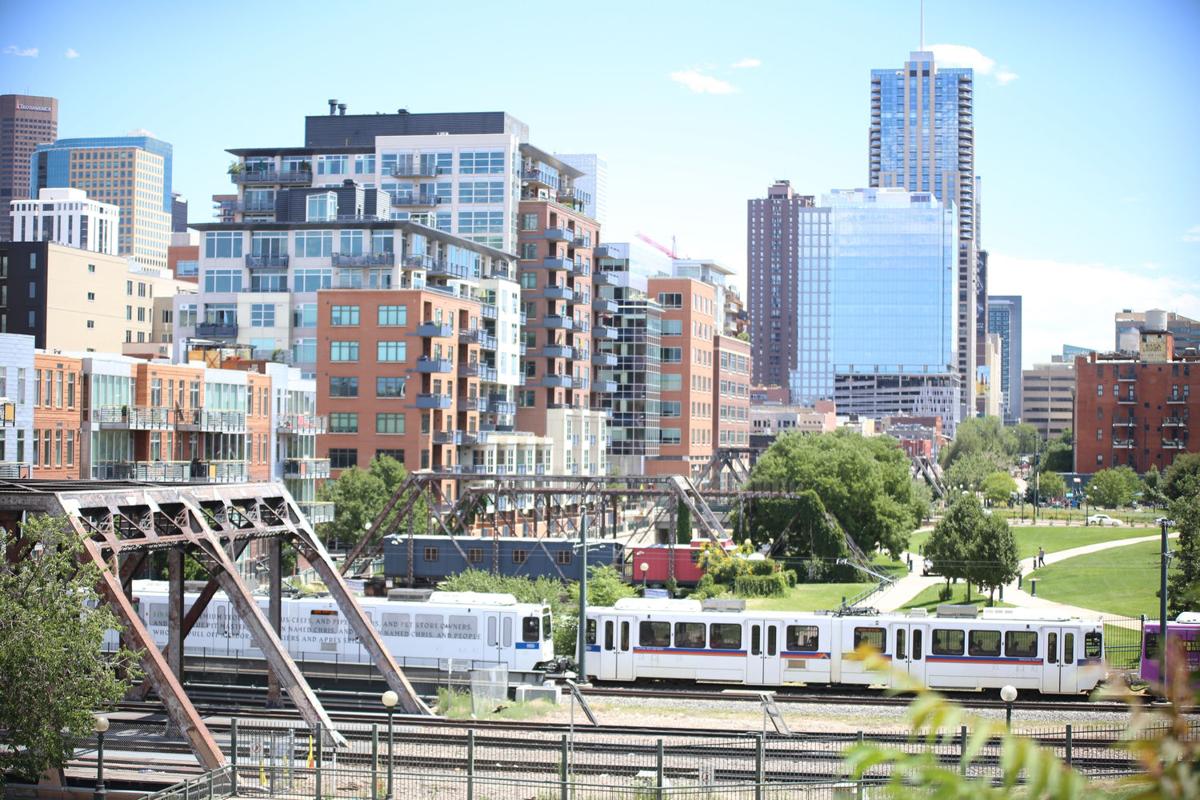
jackanerd | Shutterstock.com
Colorado’s state and local tax burden was the sixth lowest in the U.S. in fiscal 2016, according to a recent report produced Key Policy Data (KPD), a joint venture between Public Choice Analytics and Visigov.
The report relies on an income-based analysis dividing the state’s total tax collections by its private sector personal income. The national average using this methodology was an overall local and state tax burden of 14.3 percent of income; Colorado’s was 11.8.
KPD compared the burden of tax systems across states by measuring tax collections against the size of the economy. It defines this as the “total private sector share of personal income, which is personal income minus government compensation and personal current transfer receipts” such as Social Security, Medicare and Medicaid.
Legislators find way to restore pot-tax funding to RTD, museums
Legislators find way to restore pot-tax funding to RTD, museums
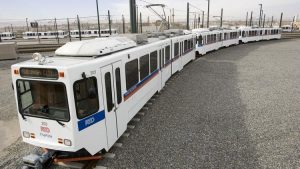
A RTD train sits at the corporate office, located between the Evans and Broadway stations.
By Ed Sealover – Reporter, Denver Business Journal
Jan 30, 2018
Regional Transportation District trains, Scientific and Cultural Facilities District museums and other beneficiaries of special-district funding soon will be on a path to again receive the revenues from retail marijuana sales that they’d been losing since July.
Colorado senators on Tuesday approved a “fix” for the language that has left those districts unable to collect sales taxes for cannabis sales within their district since shortly after an omnibus funding bill from the 2017 session was signed into law. Affected organizations have warned that while the problem has not led to program cuts yet, it could do so in the future if it’s not remedied.
The fix to the error made in Senate Bill 267 is not one with unanimous support, having passed to the House Tuesday on a final vote of 24-10. Republican leaders warned not only that they feel the bill is unconstitutional, but that districts that re-start the collection of marijuana taxes without a vote of the people may be challenged in court.
Still, the organizations likely to begin receiving more money in the near future cheered Thursday’s vote to pass Senate Bill 88 out of the Republican-majority Senate and onto the Democrat-led House, where leaders have expressed support for the fix.
“Right now we’ve been able to absorb that loss of revenue. But long-term it’s definitely going to affect what we’re able to do,” said Scott Reed, assistant general manager for communications at RTD, which has lost about $500,000 a month. “This is a step in the right direction to correct the inadvertent mistake from Senate Bill 267.” Continue reading
Republicans block pot-tax fix in Colorado Legislature’s special session
Colorado state Senate Republicans killed a second attempt Tuesday to re-establish a tax that could cost special districts some $6.9 million this fiscal year and then adjourned what might have been the least productive special session in the history of the state Legislature.
The final gavel, which came down at 2:23 p.m., ended two official days and several unofficial weeks of wrangling over whether the Legislature could fix an error it made in Senate 267 — the omnibus bill from the 2017 regular legislative session that boosted transportation funding, reduced business personal property taxes and freed up room under the state’s revenue cap by turning the hospital provider fee into an enterprise fund.
The error occurred when the bill inadvertently eliminated the ability for special districts to levy sales taxes on retail marijuana — a change that most affected the Regional Transportation District, which is slated to lose $6 million through June 30 because of it.
Legislative Democrats, with the backing of Gov. John Hickenlooper, offered two bills during the two-day special session that sought to clarify that special districts do have the ability to collect sales taxes on that uniquely Colorado project.

